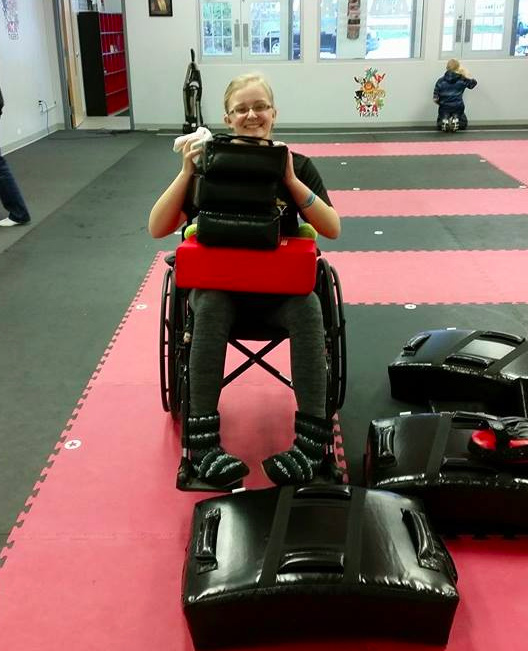“Which floor are you going to?” he asked. “The second floor,” I quickly answered with a smile. “Oh look, she’s going to the same floor as us!” “Yes,” I said, “I go to the doctor by the eye doctor’s office.” “That’s where we are going,” his mom announced. I expected the discussion to end right there as we moved toward the elevator. Then he loudly declared, “Why are you in a wheelchair?”
I had to think quickly to respond to this question. I told him that my legs didn’t work right and I couldn’t walk. The doctors were trying to make them move again. He briefly paused before asking, “Why don’t they work?” His mother was clearly mortified by all of her son’s questions, but when I smiled at her, I could see it all melt away.
I asked him if he knew what the brain was and how a post office worked. He did, so I went on to say that the envelopes with the messages in my brain couldn’t get to the right mailboxes in my feet and legs, so as a result, the muscles in my feet and legs don’t get the right messages. Because my legs can’t get these messages, they don’t know how to move right. “So that’s why you are going to the doctor? So they can make your legs work again?” he asked. “Yes, buddy,” I said with a big smile.
As we walked toward the office, the mother said, “Some people need glasses to see and some people need wheelchairs to move around.” “And some people need both!” I jokingly added as I pressed the button to open the door. As we went through the
door, she turned back to me and mouthed, “Thank you.”
To the mother who didn’t stop her son from asking me why I was in a wheelchair — I want to thank you.
Thank you for allowing your son to see that everyone has different abilities and some people need more assistance than others. Because of these kinds of experiences, he will become a compassionate and open-minded individual. To be totally honest, we need more people like him in this world.
For me and I believe for so many others, we would prefer to be asked questions about what makes us special instead of being stared at constantly. From this experience, I have learned how to quickly explain why my legs don’t work to a young child. Because simply saying I have a neurological condition called dystonia would not have meant anything to him, and it would not have been a good learning experience.

